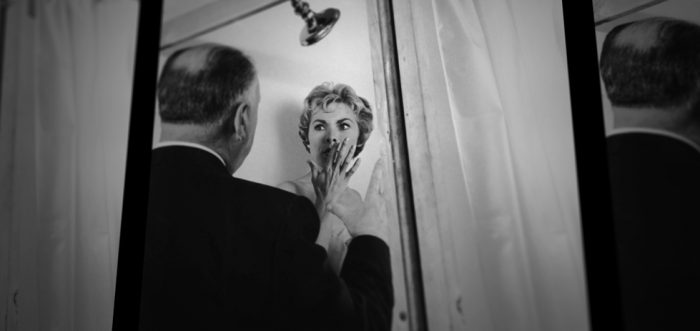![]()
Walter Murch — no stranger to montage1 — is describing a sequence of shots. He’s matter-of-fact but speaks with a surprising curiosity. He notes an odd cut; it’s one of the famous cuts, though it’s not famous for being particularly unusual. Then he half-pauses, as if to question his own judgement. It’s a nicely observed moment, maybe even the best, in the docu-essay 78/52. Rather than have Murch continue to narrate the sequence, though, director Alexandre O. Philippe subs him out for a South Park editor, whose observation of one of the most iconic moments in American cinema amounts to little more than a lecture on the difference between ‘suspense’ and ‘surprise’.
The subject of their intermittently lyrical waxing is the shower sequence in Alfred Hitchcock’s Psycho. Philippe’s film, essentially a DVD extra that has somehow managed an international festival run, is packed to the gills with perspectives; authors, directors, critics, editors, academics, and blood relatives of relevant performers have their say about Marion Crane’s death and the cinematic legacy of the film made famous by it. What they collectively say, though, amounts to very little. The superficiality of almost all analysis is matched by Philippe’s aesthetic approach. He opens on a tacky re-enactment of Crane’s arrival at the Bates Motel, which sets the template for all of the interviews: subjects appear in digital black and white footage, filmed as if in one of the hotel’s many rooms.2
The film’s hyperspecific title — the sequence contains 78 setups and 52 cuts — is a misnomer. Rather than zero in on the sequence for the whole runtime, Philippe lurches between digressive sections on Hitchcock’s marketing of the film, a token academic’s psychoanalysis of post-war America (n.b. mothers are secretly evil) and revisits — only to confirm — widely-accepted trivia about the scene (it was indeed chocolate syrup; it is indeed unusual to kill off your main character after the third reel). The gambit of 78/52 is that audiences will be satisfied by mere affirmation: if you think the shower scene is important in some vague way then, boy, are you fairly correct. Interesting avenues of discussion are quickly neutered; Karyn Kusama notes early on that the scene should be viewed primarily as one of assault on the female body — and doesn’t get another chance to elaborate. Peter Bogdanovich saying that seeing Psycho in cinemas felt like being raped? Well, let’s hear some more of that.
The most egregious diversion of focus comes courtesy of the founders of American production company SpectreVision. Elijah Wood and directors Josh C. Waller and Daniel Noah sit on a couch watching the film on a television screen just off camera. Their company has distributed films like Greasy Strangler and A Girl Walks Home Alone At Night, but rather than approach Psycho in terms of the debt contemporary horror films owe it, they position themselves as audience surrogates. They mock the theoretical box office failures of obscure Czechoslovakian filmmakers who might have influenced Hitchcock and claim at one point that the shower sequence “is the exact inverse of the rape scene in Irreversible.” It’s not. Anytime we jump back in to hear their musings, the film is at its most needlessly existent.
What makes the viewing experience of 78/52 so impressively frustrating is the sense that Philippe has no idea whose arguments and analyses are actually worth following, or how his film’s subjects might play off each other to form a compelling narrative. A whole film could be built out of a series of Murch’s shot by shot breakdowns; a fascinating featurette could come from Amy E. Duddleston, who cut Gus van Sant’s curious (and infamous) shot-for-shot remake of Psycho, reflecting on the challenges of editing a film designed for intense scrutiny. Instead they are each allocated a small chunk of time, with Duddleston apparently less useful for 78/52’s bland proclamations than Hardware director Richard Stanley, who relentlessly reiterates just how good Psycho is. No kidding.
In 78/52, Marion Crane’s death is posed as an example of the brutality and meaninglessness of life itself: she decides to return the stolen money and face all consequences she fled from and is promptly murdered. Likewise, there’s a meaninglessness to Phillppe’s documentary. It too should flicker out before the end of third reel and yet, for some unknown reason, it just keeps going.
